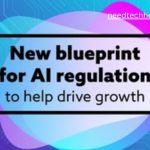Artificial Intelligence (AI) has shifted from being just a technological tool to becoming a powerful driver of politics in 2025. From analyzing voter behavior to shaping policies, AI now plays a critical role in how governments, political parties, and leaders interact with citizens. While this integration has brought efficiency and innovation, it has also raised questions about democracy, transparency, and control.
This article examines the ways AI is reshaping modern politics, the opportunities it presents, the ethical dilemmas it raises, and what the future may hold for democracy in an AI-driven world.
AI in Political Campaigns
Political campaigns once relied heavily on polls, rallies, and traditional advertising. In 2025, campaigns are now AI-powered ecosystems.
-
Voter Behavior Analysis: AI systems study voter data, including social media activity, to predict political leanings and voting intentions.
-
Targeted Messaging: Campaigns use AI to deliver customized messages to individuals or groups, increasing engagement.
-
Debate Preparation: Politicians rely on AI simulations to prepare for debates by predicting likely opponent arguments.
-
Fundraising Optimization: Algorithms identify potential donors, suggest ideal times for outreach, and predict contribution amounts.
These tools make campaigns more efficient, but critics argue they create an unfair advantage for well-funded candidates with access to advanced technology.
AI and Policy Development
AI is also influencing how policies are made:
-
Data-Driven Decisions: AI models process vast amounts of economic, social, and environmental data to recommend policies.
-
Predictive Modeling: Governments use AI to simulate outcomes of potential laws before implementation.
-
Citizen Feedback Analysis: Natural Language Processing (NLP) tools evaluate citizen comments and petitions, giving leaders real-time insights into public opinion.
-
AI in Law Drafting: Early versions of laws are being written with AI assistance, ensuring efficiency and consistency.
This integration allows policymakers to act faster and more accurately. However, it raises concerns about whether algorithms should have such influence over democratic decision-making.
AI in Governance and Administration
Governments worldwide are embedding AI in daily operations:
-
Smart Governance Systems: AI handles tasks like tax processing, license renewals, and social welfare distribution.
-
Corruption Monitoring: AI analyzes transactions and government spending to detect fraud and corruption.
-
Crisis Management: AI predicts natural disasters and provides governments with strategies for rapid response.
-
Judicial Systems: AI is being tested for analyzing legal cases, speeding up justice delivery.
The efficiency of AI has reduced bureaucracy, but critics warn of the dangers of over-reliance on machines.
Ethical and Democratic Concerns
The rise of AI in politics has ignited ethical debates:
-
Bias in Algorithms: AI systems reflect biases in the data they are trained on, potentially reinforcing discrimination.
-
Privacy Issues: Collecting and analyzing citizen data risks violating privacy rights.
-
Manipulation Risks: Personalized political messaging can cross the line into manipulation, undermining free will.
-
Accountability Gaps: If AI makes a mistake in policymaking or governance, who takes responsibility—the developer, the government, or the AI itself?
These concerns underline the urgent need for strict regulations governing AI use in politics.
Global Examples in 2025
-
United States: AI-driven campaign strategies are at the core of the 2024 and 2025 election cycles, raising debates about manipulation.
-
China: The government uses AI for social governance, including monitoring citizens’ behavior through social credit systems.
-
European Union: The EU has established strict AI political guidelines, ensuring transparency and limiting misuse.
-
India: AI tools are helping analyze massive voter populations, assisting in creating welfare schemes tailored to local communities.
Each region approaches AI in politics differently, reflecting unique political structures and cultural values.
The Future of Democracy in the AI Era
The critical question is whether AI strengthens or weakens democracy. Supporters argue that AI enhances efficiency, reduces corruption, and makes policies more accurate. Skeptics fear AI will centralize power, making democracy vulnerable to manipulation.
Looking ahead, experts predict:
-
AI-powered virtual voting systems with enhanced security.
-
Transparent AI tools that show how decisions are made.
-
Strict global treaties governing AI use in politics.
-
A hybrid system where human leaders and AI jointly shape decisions.
The outcome will depend on how responsibly governments regulate and use these technologies.
FAQs
How is AI being used in political campaigns today?
AI analyzes voter behavior, delivers targeted messages, prepares debate strategies, and optimizes fundraising.
Can AI draft laws and policies?
Yes, AI assists in drafting laws, analyzing impacts, and providing data-driven recommendations, though final decisions remain with human lawmakers.
What are the risks of AI in politics?
Bias, privacy violations, manipulation of voters, and accountability gaps are the most pressing risks.
Which countries are leading in political AI adoption?
The U.S., China, and the EU are leading, while emerging democracies like India are also adopting AI at scale.
Will AI replace politicians in the future?
Not entirely. AI may support decision-making, but human leadership, ethics, and accountability remain essential in governance.
Conclusion
In 2025, Artificial Intelligence is no longer a background tool—it is at the center of political power. From campaigns to governance, AI has reshaped how leaders connect with citizens and how policies are made.
While AI offers efficiency and insight, it also poses threats to democracy if left unchecked. The challenge is finding balance—harnessing AI’s potential without allowing it to override human judgment and democratic values.
Ultimately, AI should serve as a partner in politics, not a replacement for human leaders. The decisions made today about regulating AI will determine whether it strengthens democracy or undermines it in the years to come.











